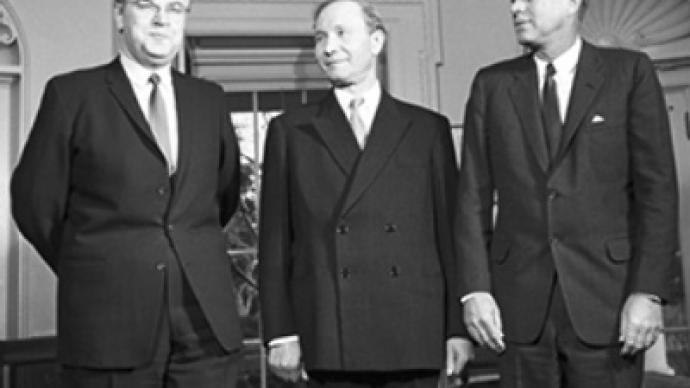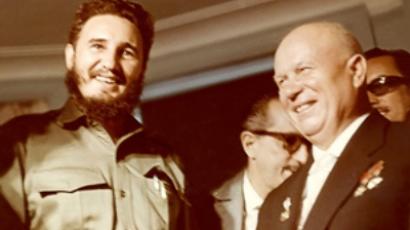Legend of Soviet diplomacy remembered

Politicians and diplomats have bid farewell to the Soviet Ambassador to the US during the Cuban Missile crisis, Anatoly Dobrynin. The “legend of Russian diplomacy” died on April 6 at the age of 90.
The representative of Moscow in Washington throughout the Cold war – until 1986 – began his ambassadorship at the time of the Cuban Missile Crisis, when the two world powers were on the breach of nuclear war.
It is largely thanks to Dobrynin’s back-channel skills that it became possible to resolve one of the most dramatic tensions in relations between the USSR and the US. The diplomat, together with the Soviet Foreign Minister Andrey Gromyko, held negotiations with then-American head of state John F. Kennedy when the USSR deployed nuclear weapons to Cuba. Also, later he held secret talks with Kennedy's younger brother, Robert Kennedy, which resulted in America dismantling its weapons in Turkey in return for the USSR withdrawing its missiles from Cuba.
Anatoly Dobrynin also contributed to improving relations between the superpowers and end of the arms race. His one-on-one meetings with Henry Kissinger resulted in the 1972 Anti-Ballistic Missile Treaty, also known as ABM treaty, which was in force for 30 years until the US unilaterally withdrew from it in 2002.
Significantly, it was on the exact day that Presidents Dmitry Medvedev and Barack Obama signed a historic Strategic Arms Reduction Treaty – or new START – that the death of Anatoly Dobrynin was reported.
The news of his departure was met with grief both in Russia and abroad. Diplomats, politicians and other prominent figures sent their condolences to Moscow.
In his condolence letter, President Dmitry Medvedev referred to him as to “a talented and bright person, a top professional and a legend of Russian diplomacy.”
Mikhail Gorbachev, the first and only president of the Soviet Union, said Dobrynin “made a great contribution to the development of international relations, the end of the Cold War and nuclear disarmament.”
“During his last years, Anatoly Dobrynin, as an honorary professor of the Russian Diplomatic Academy, dedicated his talent to training a diplomatic cadre,” Itar-Tass quotes Gorbachev’s letter. “He is the author of publications in the Russian and foreign press devoted to important international problems. Dobrynin is the laureate of many state awards, including the Order of Hero of Labour. The memories of Anatoly Dobrynin will always remain in the hearts of the Russian people.”
Former US Secretary of State Henry Kissinger remembers Dobrynin when, during the Cold War, he was working in Washington DC, heading the Russian Embassy there. “First he was my professional partner,” says Kissinger, “and then gradually, he became my friend.” Even though, he says, the Soviet politics of those times which the ambassador was standing by, often went against the US policies, “he was always trying to achieve peace, to reduce tensions and to stand by a more peaceful life on the planet,” says the former US Secretary of State. “I think of him with respect and warm-hearted feelings,” concludes Kissinger.
“I hope Dobrynin will get the memorial that he deserves,” said Donald Kendall, former head of the PepsiCo in an interview to ITAR-TASS news agency. He suggested that both Russia and the United States should put a monument to Dobrynin, as a sign of honor and respect for his achievements.
Kendall is convinced that Dobrynin’s “fantastic diplomatic skills” have several times “saved the relationships” between Moscow and Washington. “I have stressed this many times, that if in those times there would have been a different ambassador in Washington, then there could have been a real war between the two countries,” said Donald Kendall.
The American businessman, who knew the Soviet and US leaderships well, has noted that the people who were making decisions back then “were listening to Anatoly Dobrynin and trusted him.” He added that the Soviet ambassador, during the time he worked the US, acquired many friends, not only among the American leaders, but among common people as well.
Kendall says that he visited Russia a couple of times last year and met with his old-time friend Dobrynin. He noted that even though because of his illness he was almost unable to speak, he remained a great communicator.













